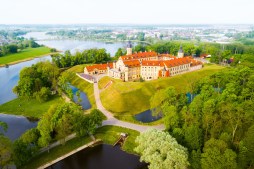Unlocking the Past: A Guide to Researching a Place’s History Before Your Trip

Exploring new destinations can be an exciting and enriching experience, but to truly appreciate the culture and heritage of a place, it’s important to delve into its history. By researching a place’s past before your trip, you can gain valuable insights that will enhance your travel experience. In this article, we will guide you through the process of researching a place’s history, helping you unlock the secrets of the past.
Why Researching a Place’s History Matters
Understanding a place’s history is crucial for several reasons. Firstly, it allows you to appreciate the significance of landmarks and monuments you encounter during your travels. By knowing their historical context, you can truly grasp their importance and admire them on a deeper level.
Secondly, learning about a place’s history provides insight into its cultural identity. Understanding how events shaped local customs and traditions helps you connect with locals and immerse yourself in their way of life.
Lastly, researching a place’s history can help you avoid cultural misunderstandings or unintentionally offending locals. It allows you to familiarize yourself with societal norms and customs so that you can show respect and appreciation for local traditions.
Step 1: Start with Online Resources
The internet is an invaluable tool when it comes to researching a place’s history. Start by searching for official tourism websites or local historical societies dedicated to preserving the region’s heritage. These websites often provide comprehensive information about significant events, cultural landmarks, and historical figures associated with the area.
Additionally, online databases such as libraries or archives may contain digitized documents, photographs, or maps that offer insights into a place’s past. Take advantage of these resources to gather primary sources that paint an accurate picture of historical events.
Step 2: Visit Local Libraries and Museums
Once you have exhausted online resources, consider visiting local libraries or museums in your area. These institutions often have extensive collections of books, manuscripts, and artifacts that shed light on a place’s history.
Librarians and museum curators are knowledgeable professionals who can guide you in your research. They may recommend books, articles, or documentaries that provide in-depth information about the place you plan to visit. Take notes and make copies of relevant documents or photographs to refer to later during your trip.
Step 3: Engage with Local Experts
To gain a deeper understanding of a place’s history, it is essential to engage with local experts. This could involve reaching out to historians, professors, or even local residents who have an intimate knowledge of the region’s past.
Consider attending lectures or workshops related to the area’s history. These events often attract passionate individuals who are eager to share their knowledge and personal experiences. Engaging with locals will not only enrich your understanding but also provide you with valuable insights and recommendations for off-the-beaten-path historical sites.
Step 4: Immerse Yourself in Literature and Films
To truly immerse yourself in a place’s history, explore literature and films set in the region. Books written by local authors or those that focus on historical events can offer unique perspectives on the culture and heritage you’re interested in.
Similarly, watching films or documentaries based on real-life events can bring history to life before your eyes. Look for movies shot on location or documentaries that delve into specific aspects of the region’s past. This visual medium can evoke emotions and create a connection between you and the place you’re researching.
By following these steps, you can unlock the rich tapestry of a place’s history before embarking on your journey. Armed with this knowledge, you will be able to appreciate landmarks, connect with locals more deeply, and navigate cultural nuances with ease. Researching a place’s history not only enhances your travel experience but also allows you to become a responsible traveler who respects and values the heritage of the destinations you visit.
This text was generated using a large language model, and select text has been reviewed and moderated for purposes such as readability.






